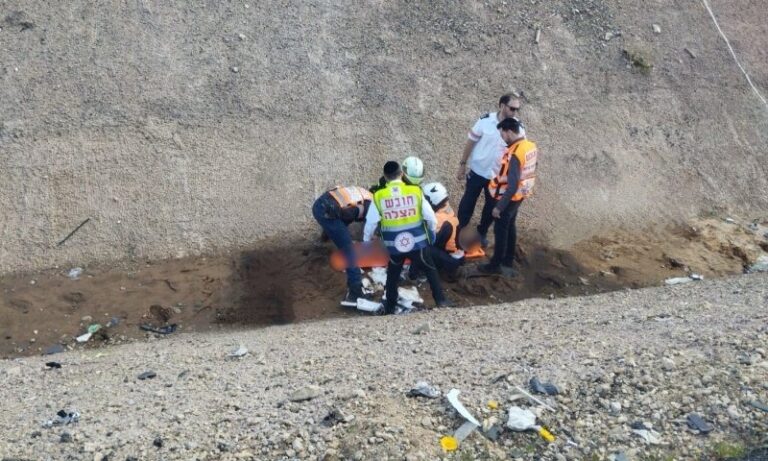With a vision of providing a solution to a major challenge facing Israeli society, since its founding in 2007, the Jerusalem-based organization Kemach has successfully seen over 20,000 charedi men and women graduate its programs and successfully enter into the Israeli workforce.
Kemach’s pace of activity is on the constant increase and a key indicator of its effectiveness is the sustainability of its model with over 84 percent of those graduates being successfully employed. But perhaps the greatest proof of the model is on the personal level when looking at the individual lives that have been so positively impacted by the organization’s work.
CLICK HERE TO LEARN MORE ABOUT KEMECH.ORG
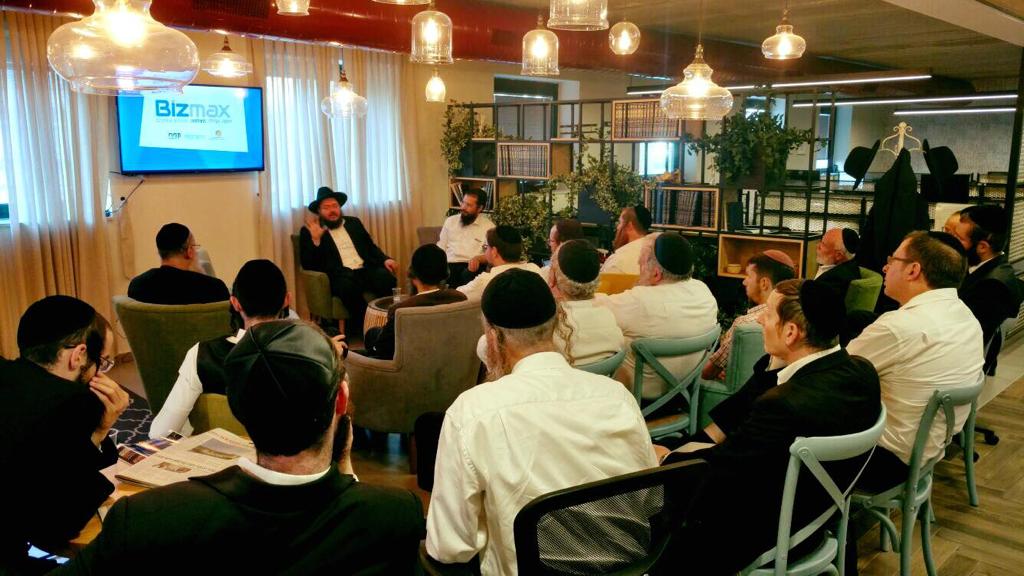
One such story is that of Adele, a mother of five. Living in the Meah Shearim community, which is often viewed as a particularly isolated and closed-off pocket of charedi society, she knew that she had the personal motivation and skills to gain employment and contribute to the financial wellbeing of her family and her community.
Through Kemach’s help and guidance she was able to secure a Masters Degree in clinical social work. She now is actively involved in working and helping children and family’s deep within the Meah Shearim community.
CLICK HERE TO LEARN MORE ABOUT KEMECH.ORG
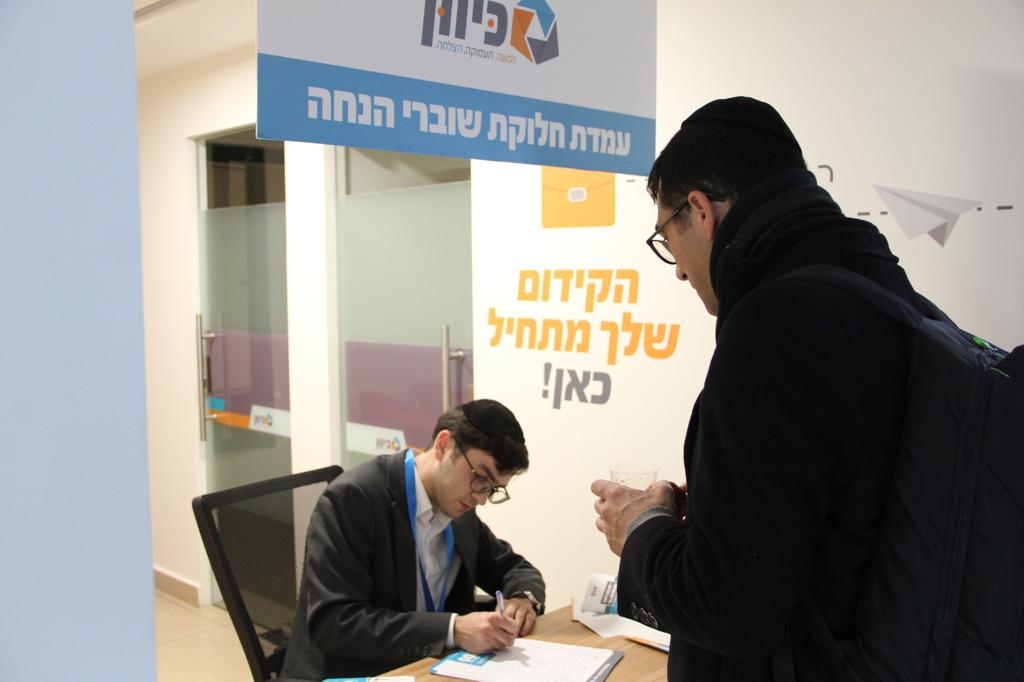
Shiran, is a mother of ten children living in Petach Tikva and until she came across Kemach feared that her dream of becoming a doctor would never come true. But as a result of a scholarship she received she was able to pursue medical studies at Tel Aviv University. She wrote, “I can simply state that without Kemach, I would not have been able to study medicine. With the full days of classes and the load of tasks I have, I would be able to work only for very few hours. Additionally, I have been blessed with ten sweet children, thank G-d, and plenty of expenses. Because of the need to support me during my medical studies, my husband had to leave his job as the principal of a school, and the family income dropped drastically. The scholarship enables us to live with dignity while I continue my medical studies. I have no words to express my thanks.”
CLICK HERE TO LEARN MORE ABOUT KEMECH.ORG

Moishy, is a Breslov Chassid from Jerusalem who at just 20 years of age is already gainfully employed at a local hi-tech company and is earning over 10,000 shekel per month. When he came to Kemach, he was recognized as being particularly intelligent and motivated and was set along a course of computer programming when he was also selected to work in one of the start-up companies being developed within the BizMax accelerator.
The organization takes its name from the well-known teaching that without Kemach, (directly translated as flour but broadly meaning sustenance of all kind), Torah will not be able to thrive.
This is a teaching which has defined the Jewish people throughout history but has become all that much more relevant in the 20th and 21st century when the charedi community has been blessed with remarkable growth and become the fastest growing Jewish community in the State of Israel.
CLICK HERE TO LEARN MORE ABOUT KEMECH.ORG
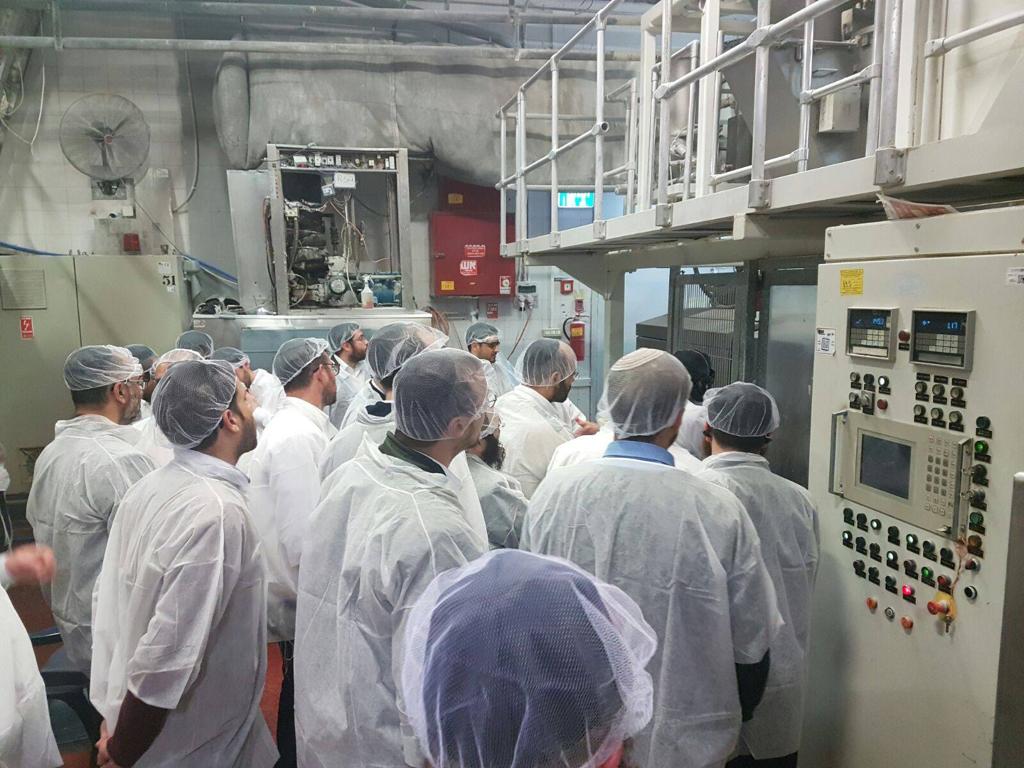
The challenges of charedi demographics were ones that many observers admit were not foreseen and there was limited visionary planning when the state was first created. In the early decades of the State, charedi representation in the national workforce was quite high, with about 35 percent of the male population holding down gainful employment. Female employment, which serves as an integral backbone of the charedi economic structure, was always higher with around fifty percent of women within the community working.
Those numbers remained in place until the 1970’s and 80s when cultural shifts led to a decrease in overall percentages and dramatic downward shifts in the male sector. By around the year 2000, with this downward slide accompanied by very rapid demographic growth within the community, people began to realize that without real solutions and a new outlook, crisis was imminent.
CLICK HERE TO LEARN MORE ABOUT KEMECH.ORG
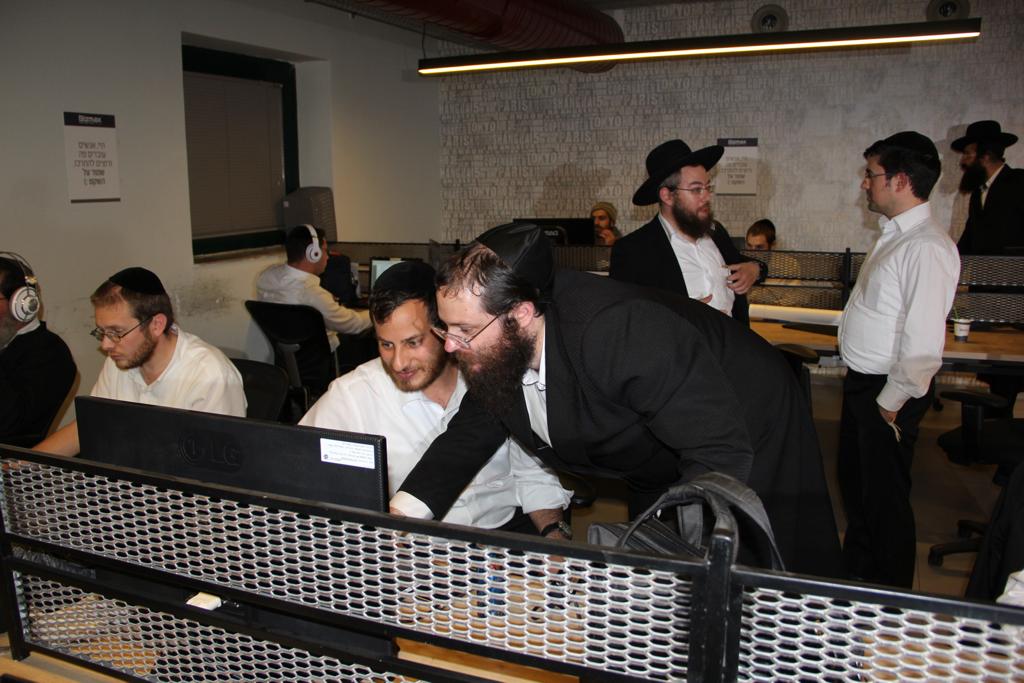
It was that concern, coupled with an appreciation that the charedi world has a great deal to offer the greater Israeli society and economy, that led to Kemach’s development and its success. While there are numerous local and smaller initiatives aimed at addressing this issues, Kemach prides itself on offering a solution that spans across all of Israel and is truly comprehensive in its approach to employment by providing opportunities to people with all types of professional interests and talents.
The main visionaries behind the creation of Kemach were three legendary philanthropists, Leo Noe, Eli Horn and Zeev Wolfson. All three, highly successful businessmen who exemplify the model of combining business success with lives defined by a strict adherence to Torah values, believed that for the Israeli charedi world to thrive, there needed to be a platform that could promote widespread charedi employment in the greater economy.
CLICK HERE TO LEARN MORE ABOUT KEMECH.ORG

“These three men had the insight to recognize that we as charedim have a great deal to offer the national economy but we needed to offer a mindset surrounding employment within our community,” explains Rabbi Nechemia Steinberger, Senior Director of Strategy and Partnerships at Kemach.
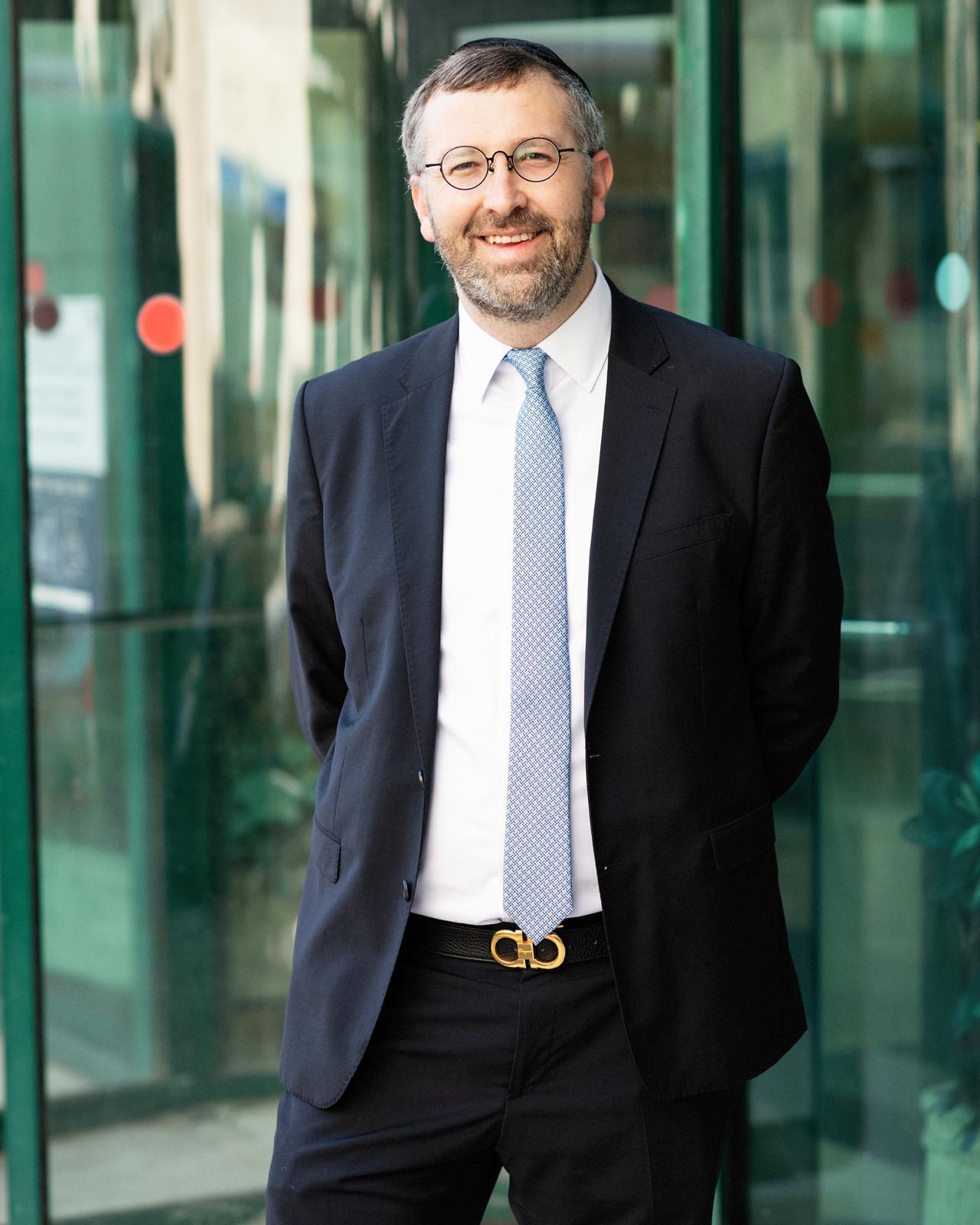
“They also understood that we should never take away the ability for people to learn but those who wanted to work should be able to find jobs in a legitimate way that wouldn’t contrast with their lifestyle.”
From the very outset, Kemach was inspired by the belief that solutions would need to come from within the community. “The charedi world thrives on a very internal structure of decision-making and influence comes from within,” explains Rabbi Steinberger. As a result, by adhering to a model that places respect for halacha and personal humility at the forefront, to this day the organization enjoys nearly widespread acceptance from leading rabbis and charedi community leaders both in Israel and across the world.
CLICK HERE TO LEARN MORE ABOUT KEMECH.ORG

The structure of the organization ensures that respect for halacha and charedi norms guides every aspect of the operation. A “kosher” approach to employment means that training for men and women is all conducted separately and attention has been made to developing courses and even college and university classes that respect those considerations. “Every person knows that with Kemach, they will be able to feel comfortable and be able to study a new profession and work in a setting that will never challenge their lifestyle or beliefs,” Rabbi Steinberger says.
Kemach’s activities are driven by a very basic philosophy that every charedi man or woman who wants to join the workforce should be given the tools to do so. With a strong commitment to transparency and integrity, a member of the Kemach team processes every request by doing a basic check that the applicant does indeed need support and then a relevant scholarship is offered. Over time, as the organization has developed, that processing infrastructure has become more complex with applicants underging a series of tests to determine the best possible course of training and eventual employment.
CLICK HERE TO LEARN MORE ABOUT KEMECH.ORG
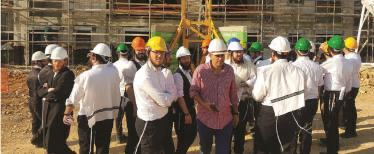
The organization fully acknowledges that finding a job is by no means a one size fits all approach. Many candidates come to Kemach with personal interests and even professional dreams that at times are unrealistic. “If a forty-year-old father of ten comes to us and says that he has always wanted to be a hi-tech executive but he has no technical background, we will work with him to create a path that will best ensure success in a more timely fashion,” Rabbi Steinberger says. “We are certainly about making every individual’s dreams come true but we also work with people to understand that sometimes those dreams need to be adapted in ways that will best ensure real and lasting success.”
While Kemach is an independently operated organization and is heavily dependent on donor support to finance its operations, they work in close cooperation with local and national governments as well as some partner organizations. They have earned the respect of some of Israel’s most prominent leaders who point to Kemach as the model for how charedim can best ensure a strong and successful place in greater society. Israel’s President Reuven Rivlin spoke about the critical function Kemach plays for the country when he said, “Without charedi society taking a meaningful part in decision-making in the labor market and in the shared responsibility, it will be hard for Israeli society to continue thriving.”
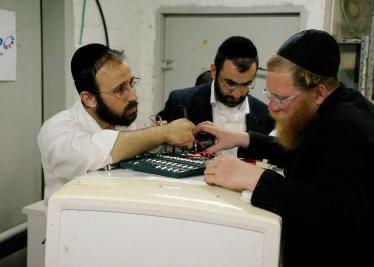
This is a sentiment which has been shared by many of Israel’s leading demographers and economists. The charedi community is by all indications the fastest growing Jewish sector of Israeli society. Without properly investing in a strategic approach to ensure increased charedi involvement in the workforce, all indicators are that the situation is unsustainable and will be coupled with a very sharp increase in poverty rates.
Kemach has responded to that concern by building the country’s most successful structure that integrates charedi men and women in jobs that will both sustain them and their families but directly contribute to changing the mindset around charedi employment. Their activities were recognized by the former United States Ambassador to Israel David Friedman who said, “The Kemach Foundation has a huge influence not over the charedi community but over the entire Israeli economy.” The US Embassy became a trusted partner of Kemach’s work and provided support and encouragement for their activities.
Beyond just providing people with jobs, the organization has built a training infrastructure to help equip young men and women in ways that will help them get employed. When someone comes to Kemach, they are introduced to a counselor who will determine whether they are ready for work or require additional academic or vocational training. Relevant candidates in the program are offered courses in English, math and basic computer skills.
The organization says that they see themselves as a type of production facility where often “raw” materials in the form of untrained people come into the process and emerge as skilled and motivated workers. With more than a decade of experience in securing jobs, Kemach also maintains excellent relationships with employers and acts on the front lines in match-making between companies and suitable workers. A placement division, called Kivun, was established in 2014 together with the Jerusalem Municipality and Israel’s Ministry of Labor and Welfare.
Embracing the international trend for common workplaces particularly suited for freelancers, Kemach operates its own employment hub called Bizmax which is funded in partnership with the Jerusalem Development Authority and the Achim Foundation. The hub wroks to create an environment that empowers charedi men interested in high-tech and gives them a physical space where they can collaborate with colleagues. There they are provided with professional support and training to maximize the potential behind their ideas. Within Bizmax, Kemach operates its own business accelerator which helps start-up ideas go from vision to fruition. To date, several companies have already secured substantial investor capital with many others working towards that goal.
A program called Movilot, which was founded in cooperation with the Gesher Foundation, is focused on advancing women’s employment and offers mentorship and professional training to thousands of women who might otherwise be unable to move up in a professional setting. Many candidates who come to Kemach express interest in working in public and civil service positions and the organization works in tandem with local and national governments and government agencies to make that possible.
“The enormous success of our graduates is the ultimate proof that our model not only works but that it represents the future for charedi society and indeed for Israeli society at large,” Rabbi Steinberger says. “Kemach shows that when given the tools and the motivation, young charedi men and women can so positively impact the future of our country. We just need to believe in them as much as they believe in themselves.”









